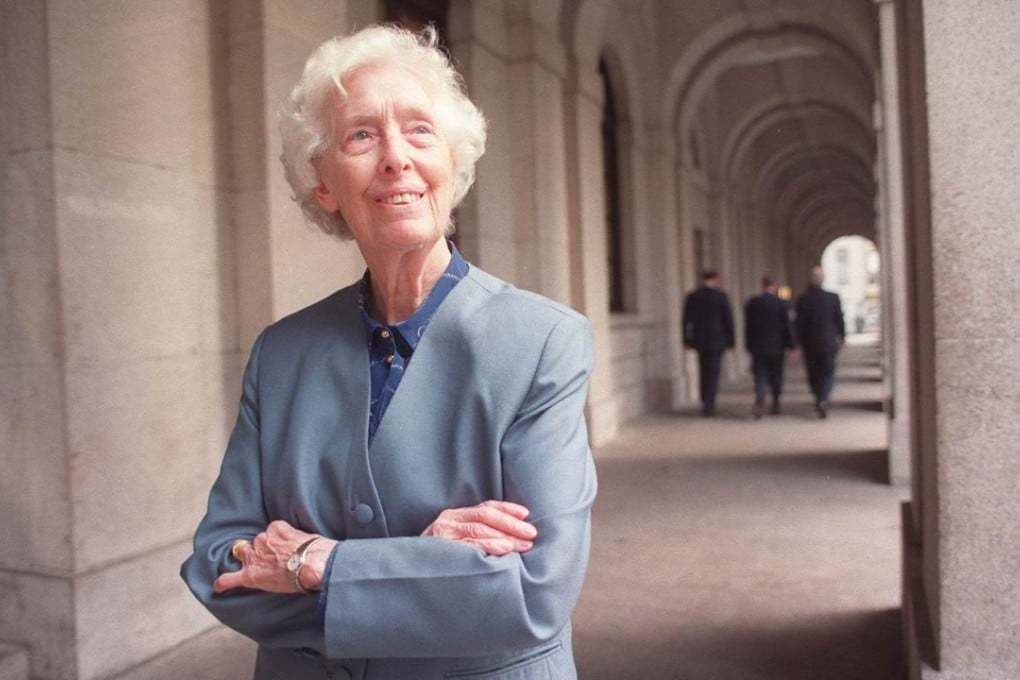Opinion | On balance, Elsie Tu’s life of service outweighs the politics
Gary Cheung says critics who do not agree with her conservative stance in her final years should not ignore her tireless fight for justice in the colonial era

Since her death last week, community leaders and political leaders have lined up to pay tribute to Elsie Tu for her tireless efforts in standing up for the underprivileged in the colonial era. Yet the late champion of the poor, who believed colonialism was evil, knew very well that her British nationality served her noble cause.
From a historical perspective, it is unfair to blame her for opposing democratic development in Hong Kong
She noted that the Chinese did not dare complain about the serious corruption in the 1960s and 1970s and she took advantage of her British citizenship to launch an anti-graft campaign, speaking directly to then governor Murray MacLehose about the rampant corruption. In the early 1970s, she even took photographs of triad gangsters collecting money from minibus drivers in Yau Ma Tei, with policemen standing nearby but taking no action. She passed the photos to TVB, which ran with the news. She believed the public attention paved the way for the establishment of the Independent Commission Against Corruption in 1974.
There were other Westerners in Hong Kong who spoke out against injustice, out of altruism and compassion for the Chinese, during colonial rule. In 1946, Father Joe Howatson, an Irish Jesuit, founded the shoeshine boys’ club at Wah Yan College, Hong Kong, for shoeshine boys and street children. The children were given basic schooling and food. In 1952, Howatson became chairman of the Boys and Girls Clubs’ Association. The contribution to Hong Kong by these kind-hearted Westerners should be remembered; Hong Kong would not be what it is without these “outsiders”, whose voices the colonial masters could not afford to ignore.
READ MORE: With her ‘higher and truer values’, Elsie Tu’s life truly was one worth living, and an example to us all

Given her deep-seated anti-colonial conviction, Tu believed Hongkongers should give Beijing a chance to honour its promise of ‘one country, two systems’
From a historical perspective, it is unfair to blame her for opposing democratic development in Hong Kong. In 1966, she went to London to lobby members of the British Parliament to let one or two elected members sit on the legislature. But her call fell on deaf ears.
The showdown between Tu and Szeto Wah, another pro-democracy heavyweight and her long-time friend, in the Urban Council election in 1995 highlighted two contrasting strategies in dealing with Beijing. Given her deep-seated anti-colonial conviction, Tu believed Hongkongers should give Beijing a chance to honour its promise of “one country, two systems” while Szeto, the late chairman of the Hong Kong Alliance in Support of Patriotic Democratic Movements of China, was uncompromising towards Beijing. Tu was defeated by Szeto in the election and later retired from politics.
Since then, Tu chose a path strikingly different from the democrats’ and criticised them for being anti-China, instead of wholeheartedly fighting for democracy. In an article two years ago, she wrote that Britain never agreed to introducing universal suffrage in Hong Kong “while China kept her word and allowed Hong Kong to introduce voting”.
Hongkongers who are impatient with the slow pace of democratisation may find fault with Tu’s conservative stance in her final years. Yet, as Democratic Party founding chairman Martin Lee Chu-ming rightly pointed out, we should judge a person based on their deeds over a lifetime.

